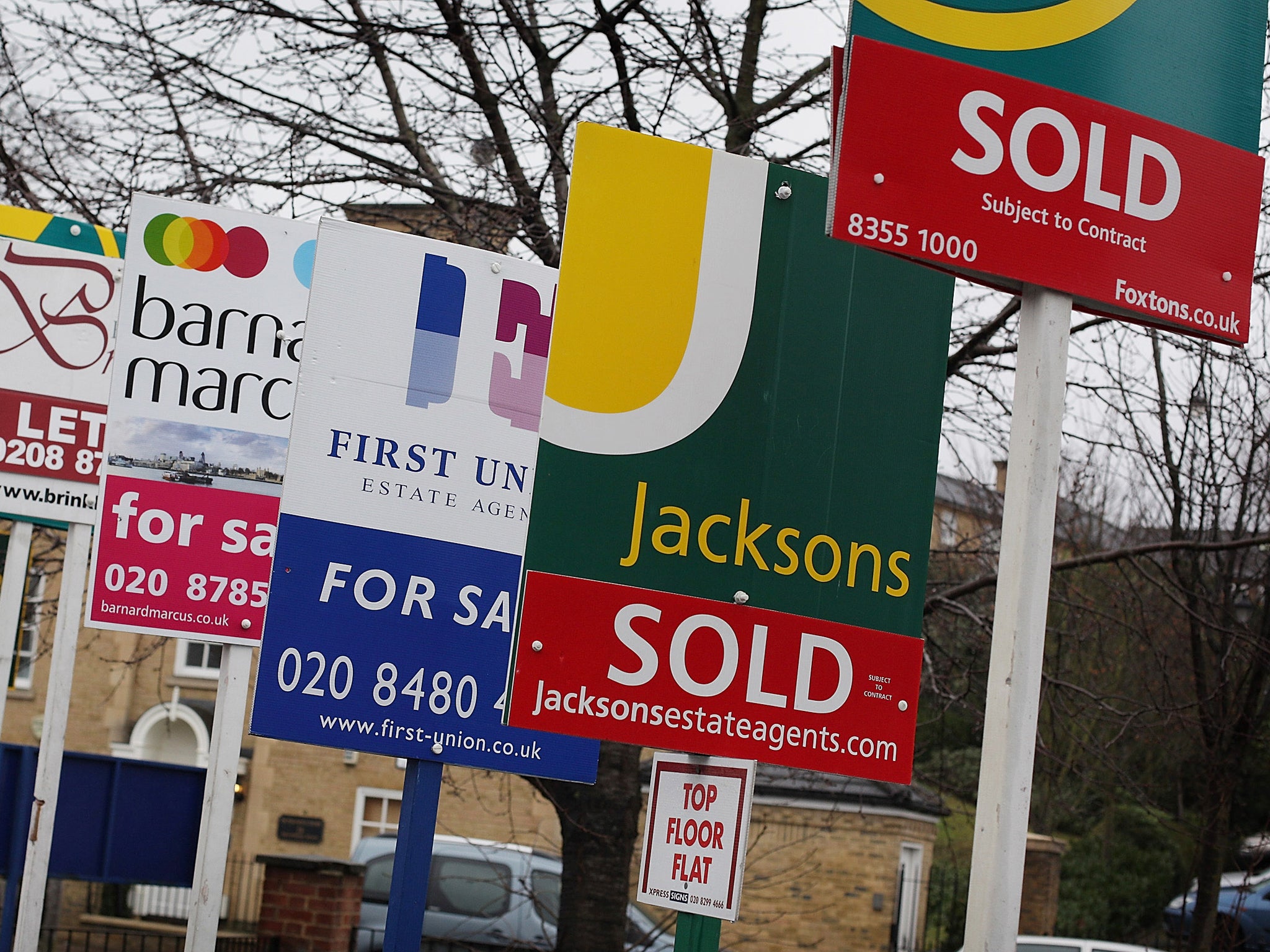House prices growing at slowest rate for more than a year
Slowdown described as temporary but not entirely unexpected

Your support helps us to tell the story
From reproductive rights to climate change to Big Tech, The Independent is on the ground when the story is developing. Whether it's investigating the financials of Elon Musk's pro-Trump PAC or producing our latest documentary, 'The A Word', which shines a light on the American women fighting for reproductive rights, we know how important it is to parse out the facts from the messaging.
At such a critical moment in US history, we need reporters on the ground. Your donation allows us to keep sending journalists to speak to both sides of the story.
The Independent is trusted by Americans across the entire political spectrum. And unlike many other quality news outlets, we choose not to lock Americans out of our reporting and analysis with paywalls. We believe quality journalism should be available to everyone, paid for by those who can afford it.
Your support makes all the difference.UK house prices rose by 0.1 per cent in July, according to Nationwide, representing the slowest growth since April 2013.
Its figures show that annual house price growth has slowed to 10.6 per cent from 11.8 per cent in June. This makes the average price of a house £188,949, although price indices vary considerably because of different ways of assessing them. Earlier this month LSL Property Services put the average house price at £268,637.
Robert Gardner, Nationwide's Chief Economist, said that the slowdown was probably temporary but 'not entirely unexpected' following evidence of a moderation in prices over the last few months.
"Mortgage approvals declined by almost 20 per cent between January and May," he said. "At least part of the slowdown in activity relates to the introduction of Mortgage Market Review measures. The modest rebound in mortgage approvals in June adds weight to the notion that the slowdown will prove temporary, though the underlying pace of demand remains unclear."
However, Hugo Thistlethwayte, managing director of buying agency Prime Purchase said: "What Nationwide says probably only applies to about 10 per cent of the UK property market because of the limited use of an average house-price figure.
"This slowdown doesn't apply to certain markets. Cambridge and Oxford are booming and there are no signs of the property markets slowing there. In areas such as West London, the housing market may be more muted than it has been but we are still seeing price rises on top of price rises. The market is as near equilibrium now as it can be."
"Over the longer term, the trajectory of house prices will remain crucially dependant on supply side developments. While there have been some encouraging signs that construction activity is picking up, the pace of home building continues to run far below most estimates of what would be required to keep up with household formation in the years ahead," said Gardner.
Paul Smith, CEO of haart, said: "House prices are not falling off a cliff, these latest figures show they are currently having a welcomed ‘pit-stop’ which is necessary for long-term, sustained growth. Annual growth figures are always a far more reliable indicator of long term trends.
"Some areas of the capital are undergoing a price correction whereby people are not willing to pay the prices as they stand, but the laws of supply and demand are still in place and we are seeing steady house price growth in the country as a whole. All elements are pointing to a very busy autumn for the market."
The Nationwide report also shows that stamp duty revenue has increased considerably in the last year to over £10 billion due to the rise in the number of housing transactions and rises in house prices.
Ed Goodworth, real estate partner at accountancy and business advisory firm BDO, said: "There is no doubt that the Mortgage Market Review is acting as a brake on house prices, but while our clients are reporting reduced footfall for new builds, there is still an excess of demand over supply. This significant supply shortage means there is less likelihood of a full scale correction in the housing market, particularly in London and the South East, and unless the government acts to help stimulate housebuilding in the UK, buyers will continue to be priced out of the market."
Join our commenting forum
Join thought-provoking conversations, follow other Independent readers and see their replies
Comments